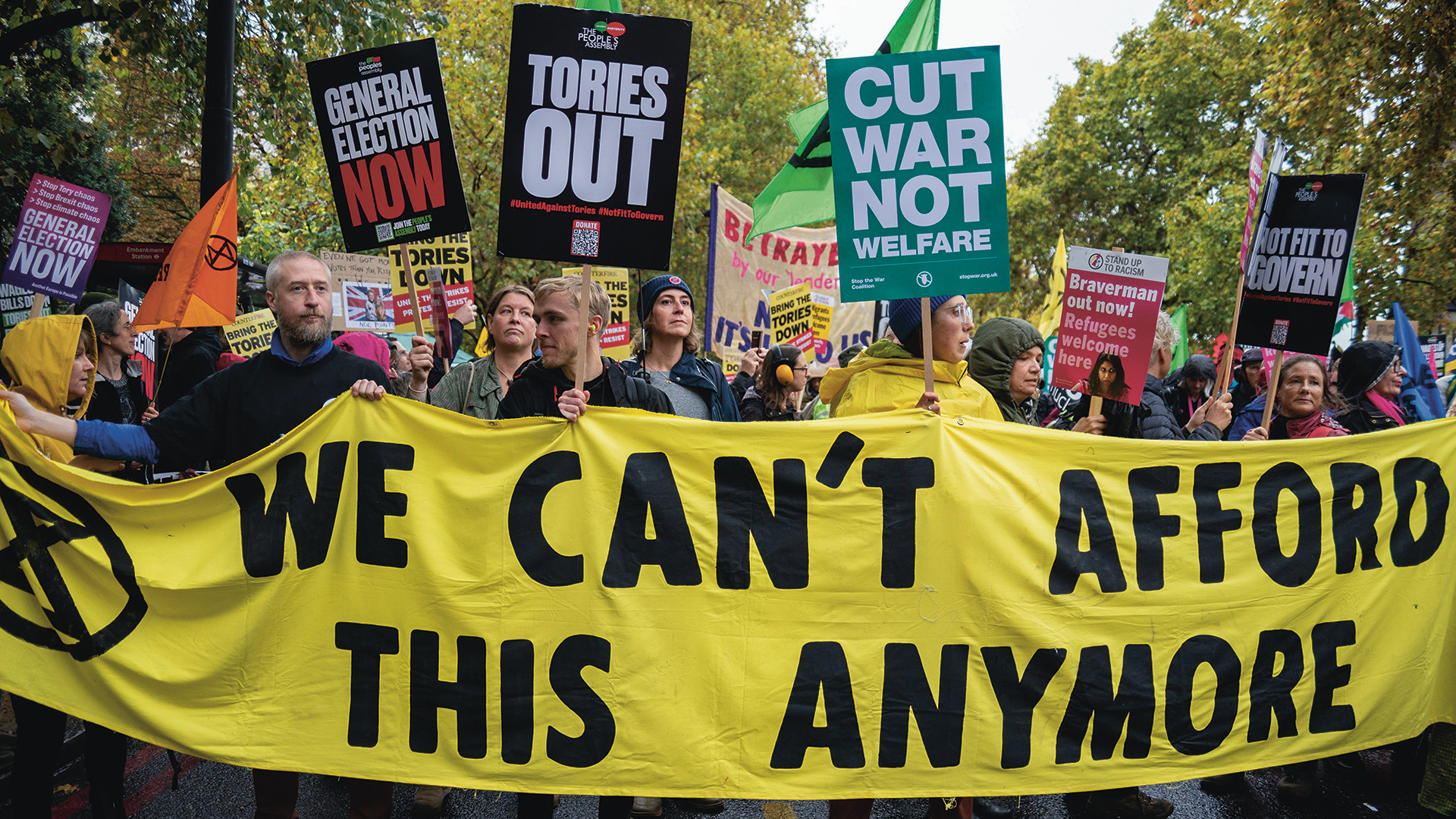Once again, the pressing concerns of poverty. One of the big problems is that as a society we cannot afford austerity. Austerity is too expensive, and costs more than spending your way out of recession. One of the reasons we now have so many people suffering the effects of inflation is that we have increased the pool of the working poor and people on social support due to austerity. The coalition government of 2010-2015 knocked the stuffing out of so many social support programmes that it kept more people in poverty and made the experience more harmful.
We had a big austerity drive that increased need and dependency. And now we are trying it again because that’s the orthodoxy that suits those that decide government policy. But what is the cost of cost-cutting?
I am asking the simple question of the government: have they costed the cost of their cuts? That is a very simple question. But it is difficult to answer. Why? Because if you take, say, £50 billion out of the social economy it is almost impossible to measure how much damage that does. You may be able to measure what you have saved. That’s simple. One year the cost was such and such. And then you make a cut of, say, 10 per cent and you know how much you have saved.
But it is a different art to measure the impact of that cut. If you cut money out of social support then the cost will be passed on to other areas: schools, hospitals, disorder in the streets, an increase in mental ill health and social dislocation. One would hope that if the Treasury really did its sums (which of course it won’t), it would throw up the true financial cost at least. Knocking out £50bn could cost maybe twice – three times – the money saved. But then there is the social cost, which turns into increased hospital bed use, more dislocation in the classroom because of hungry and depressed children, etc etc. This creates more social disorder and a sense of emptiness, which haunts an increasingly alienated community. So when a government cuts £50bn from the social economy, the economy of people in need, the damage can be immeasurable. That £50bn could have untold effects. As happened when the coalition under Cameron and Clegg so softened the social support network that it hurt people for a decade. And then of course when Covid came, the hospitals were on average 85 per cent full.
But back to cutting costs. Why do they cut costs? To save money. Why save money? Because the budgets are hit by government policy and by world events, business contraction, lack of confidence, inflation, etc. The only problem is that no one has developed the art of cutting costs to get out of recession. It is such a crude piece of government thinking. Because the damage to the body of society leaves more people and generations to suffer and be liable to poverty and increases the future need to help more people. Thus pushing up the future government’s budgets for social support.
Of course, there is always the old Tory argument (and yes, it is Tories that I have heard it from), “We can’t borrow because that lumbers future generations with our debts.” But as I have said on countless occasions, and certainly throughout the Covid period, we only stopped paying for the Second World War in about 2006, 61 years after it ended. Should we not have taken on the debt?









